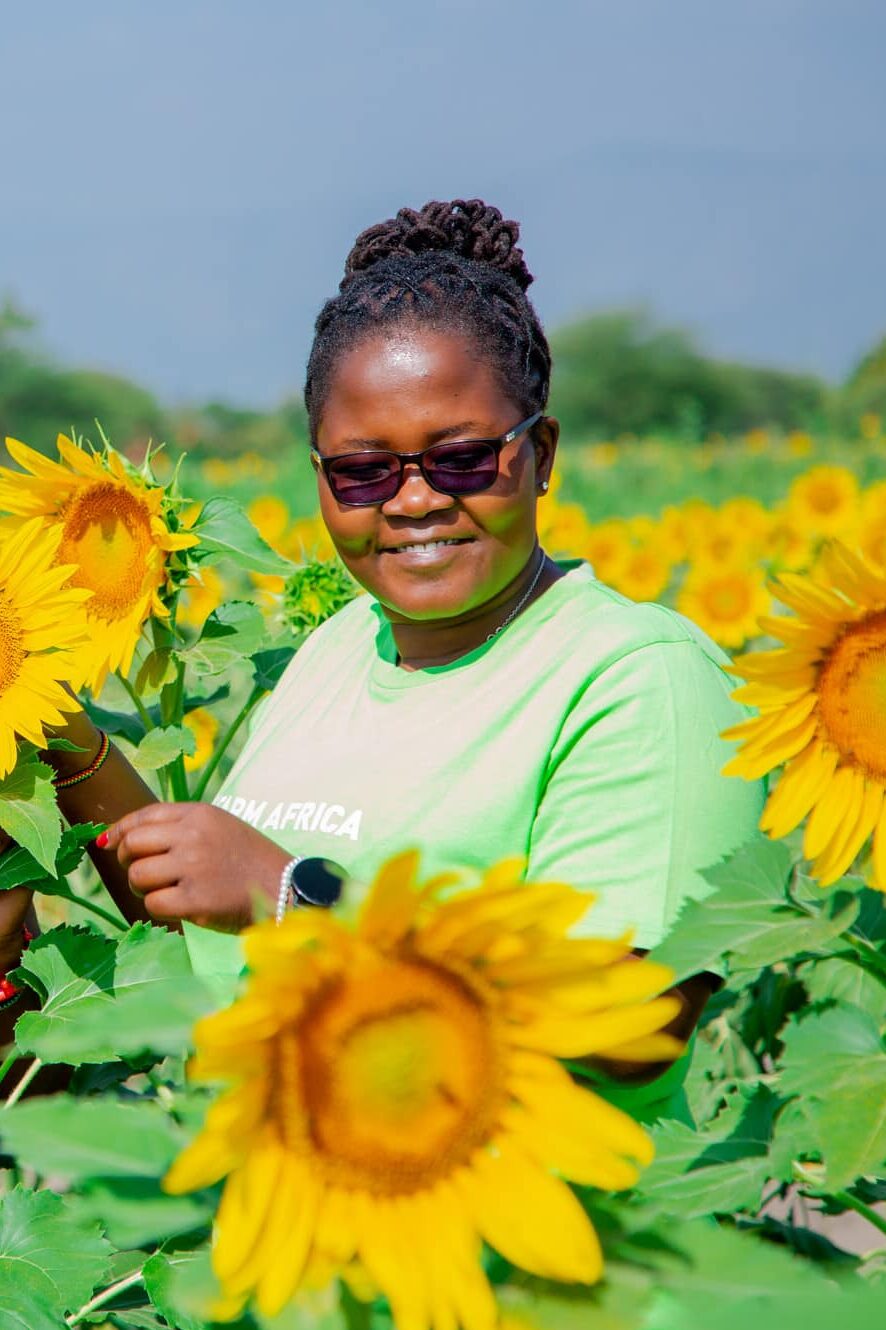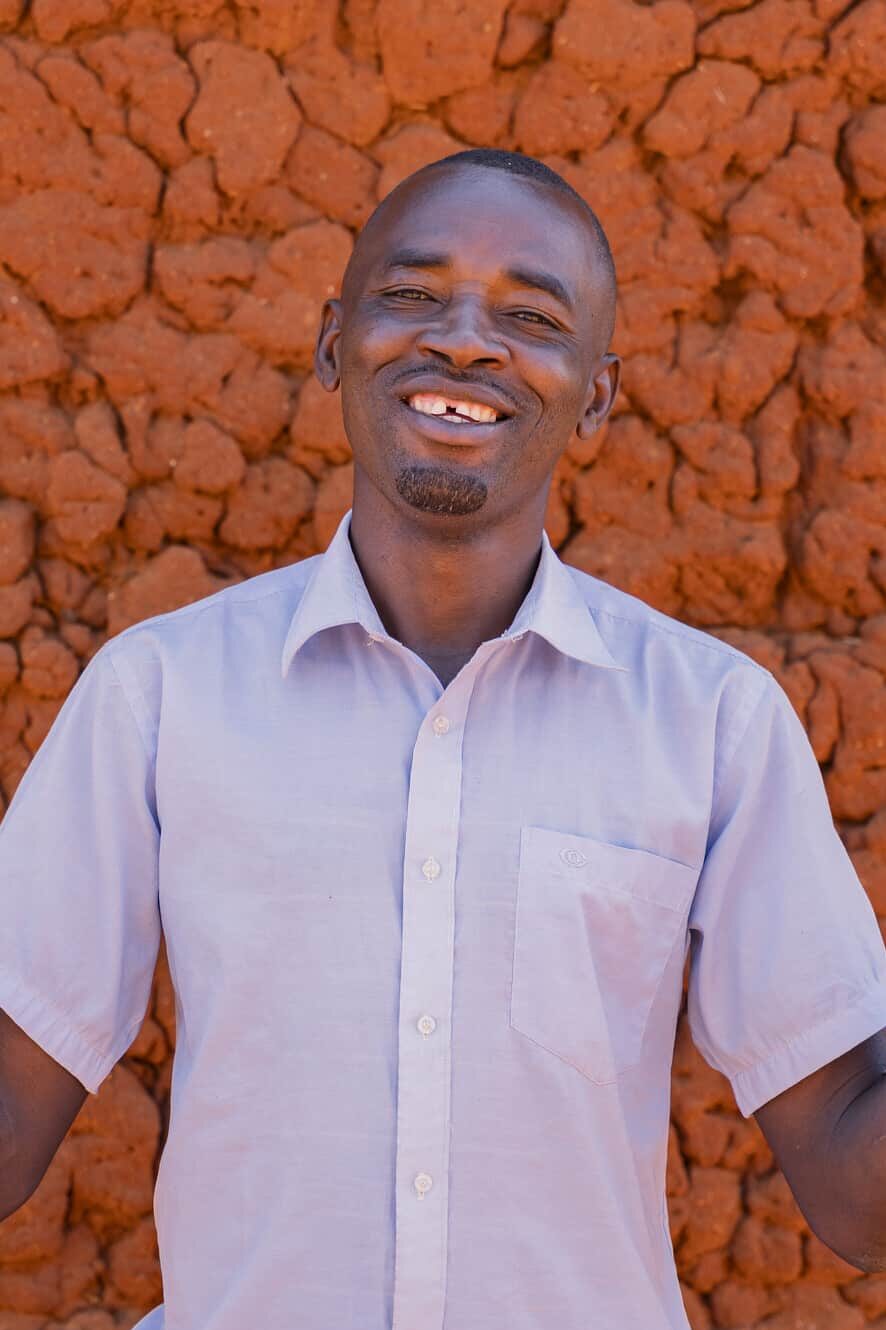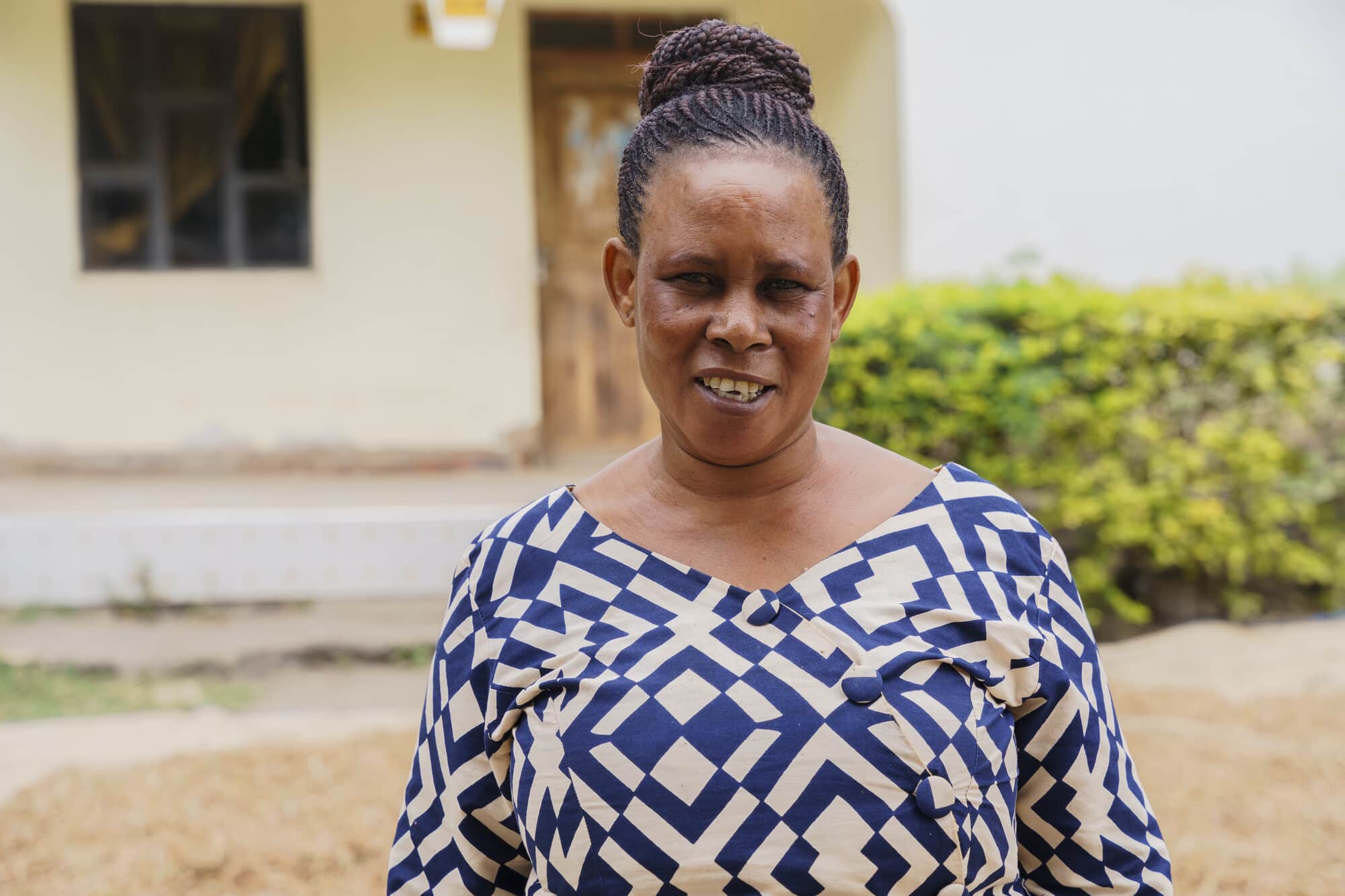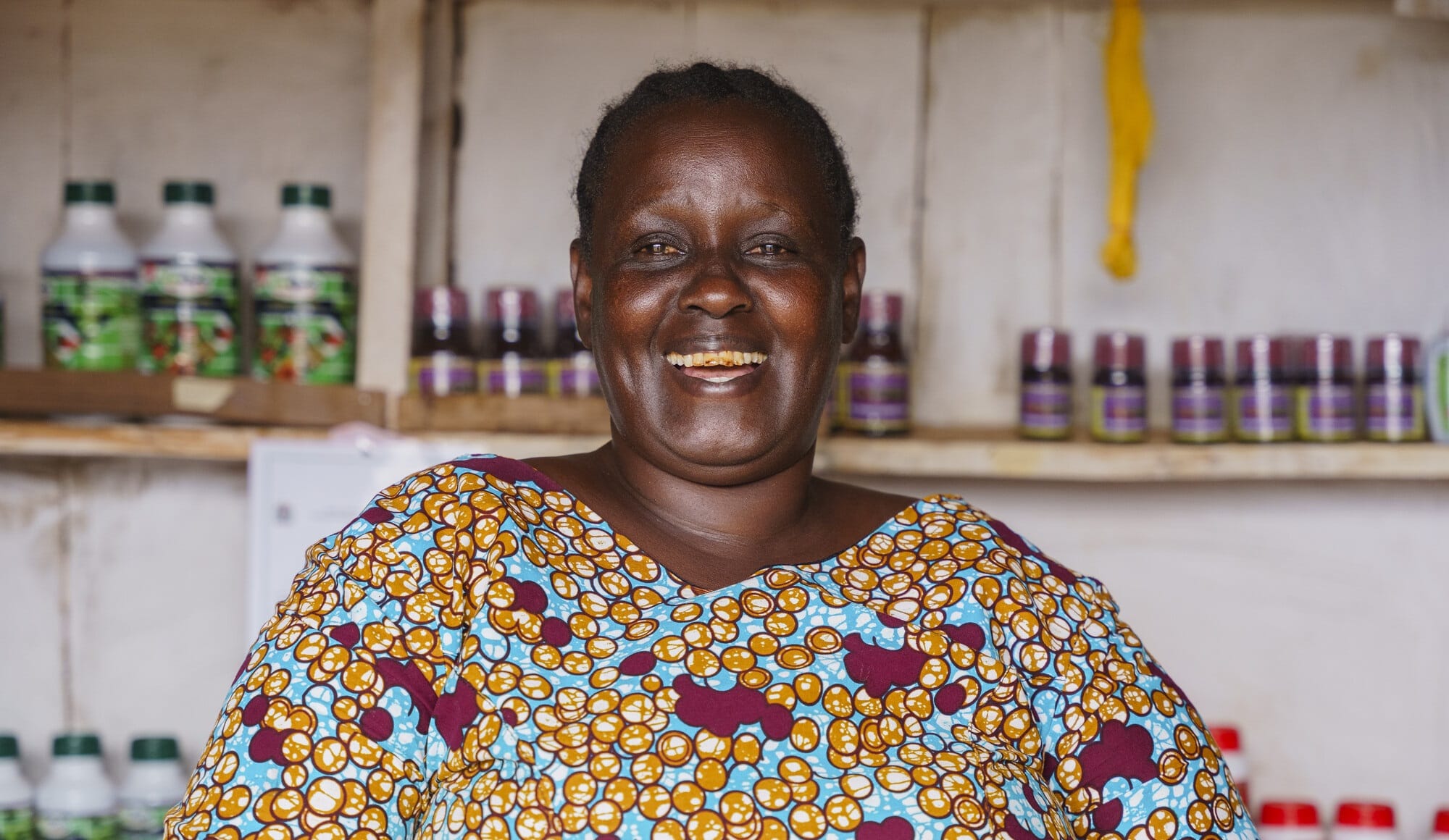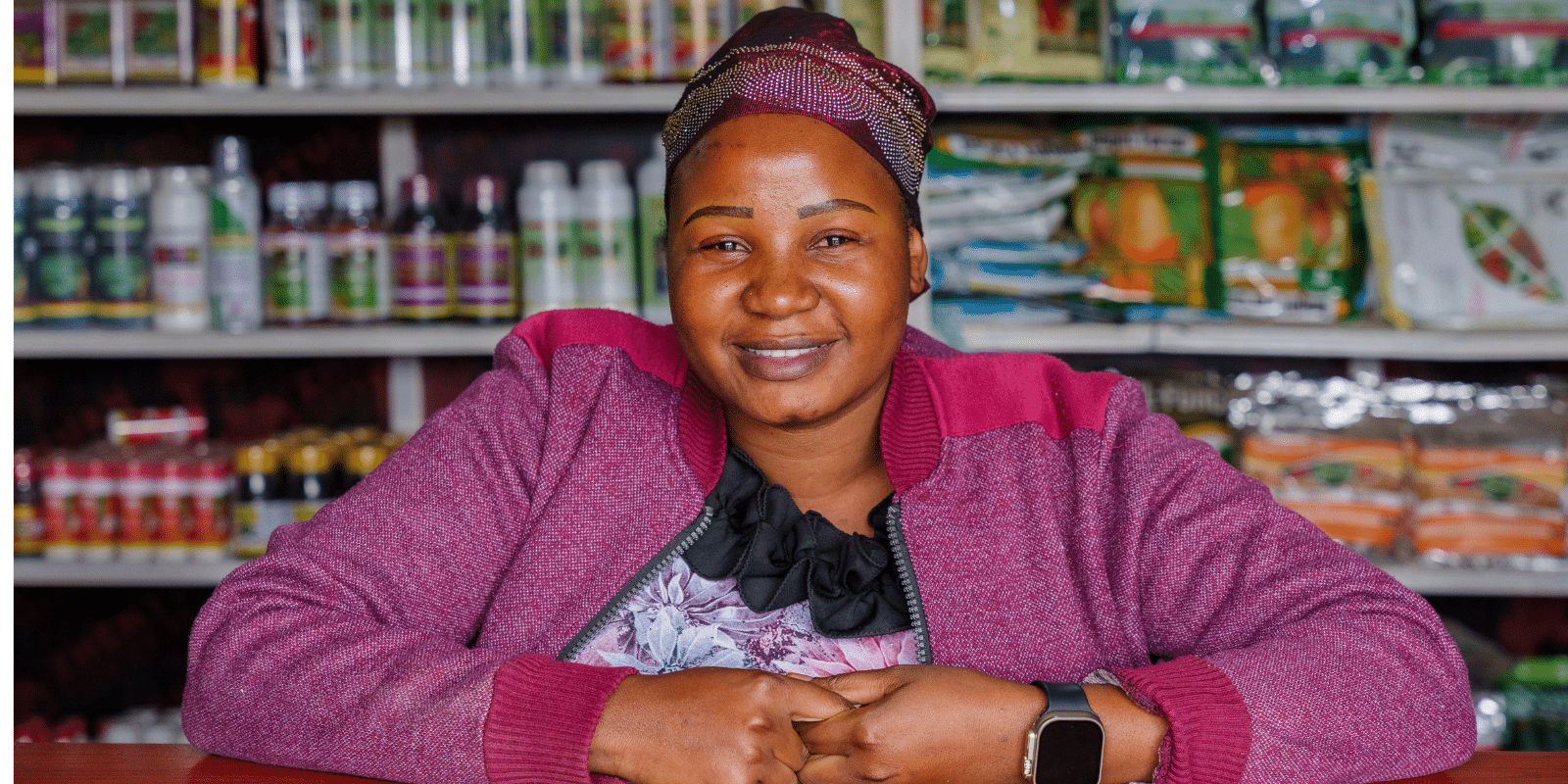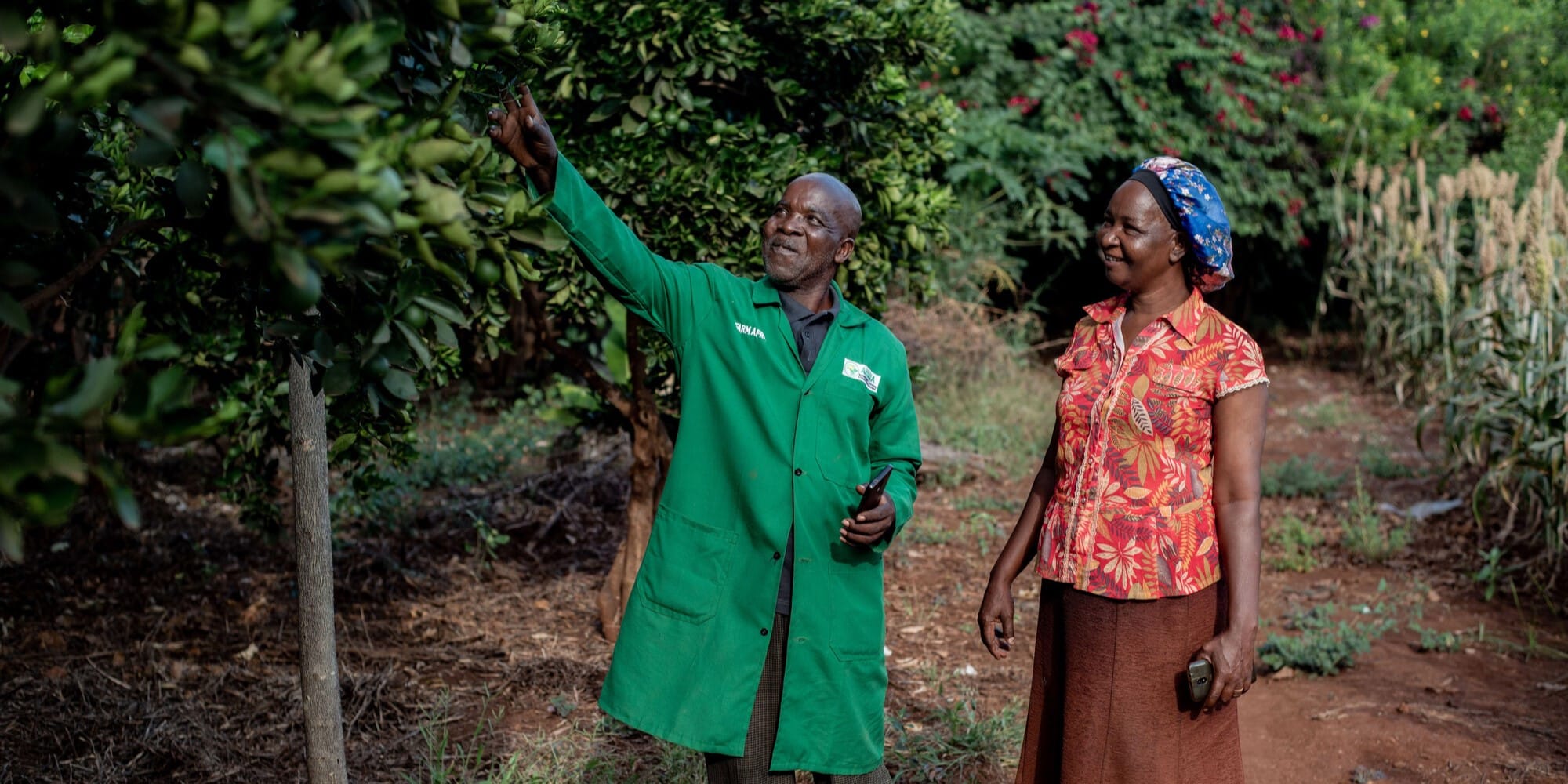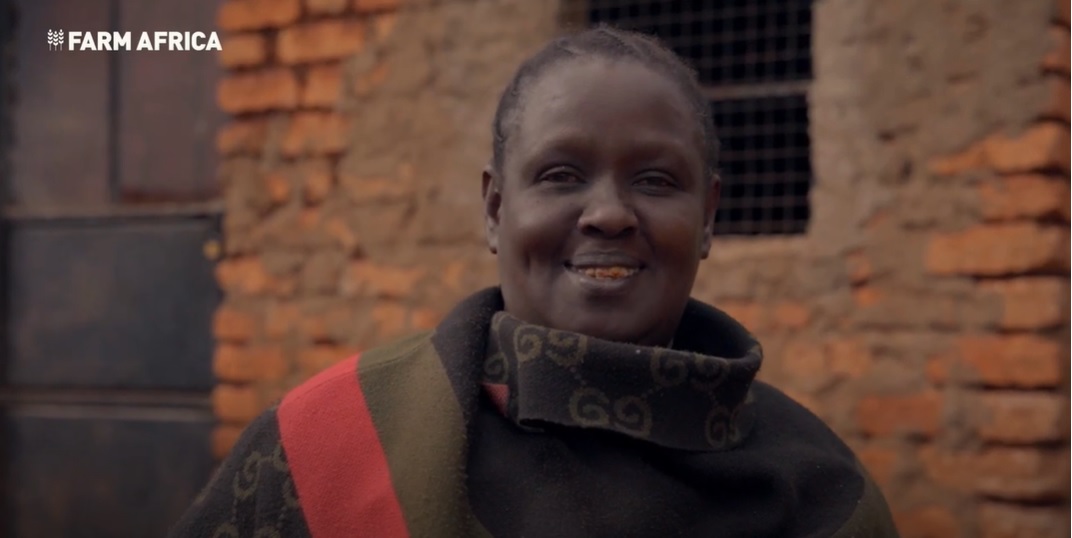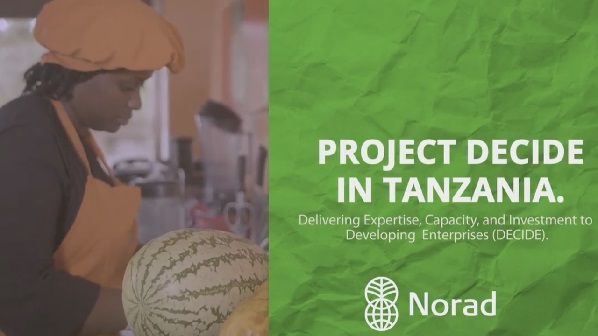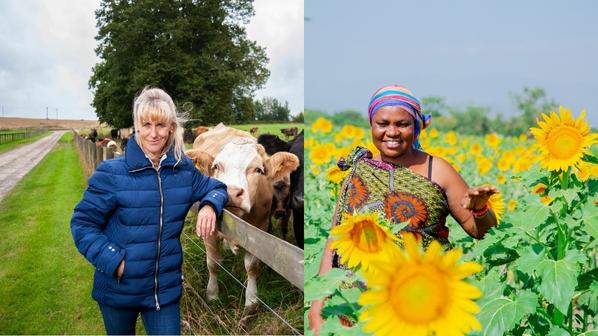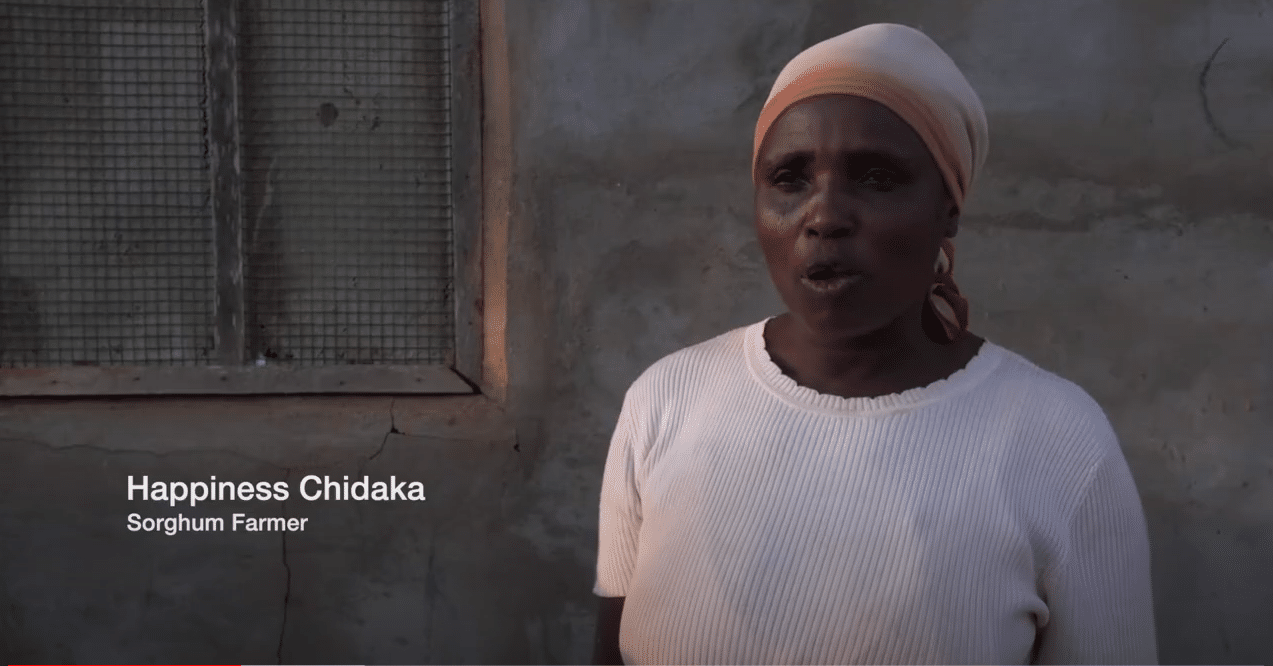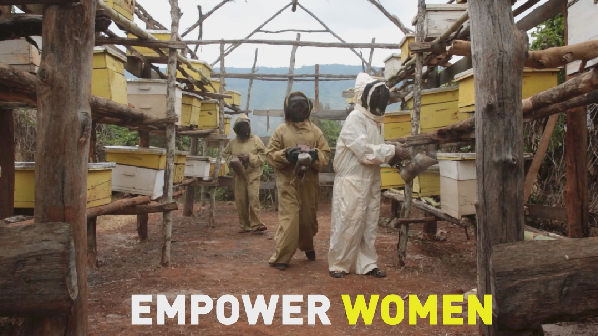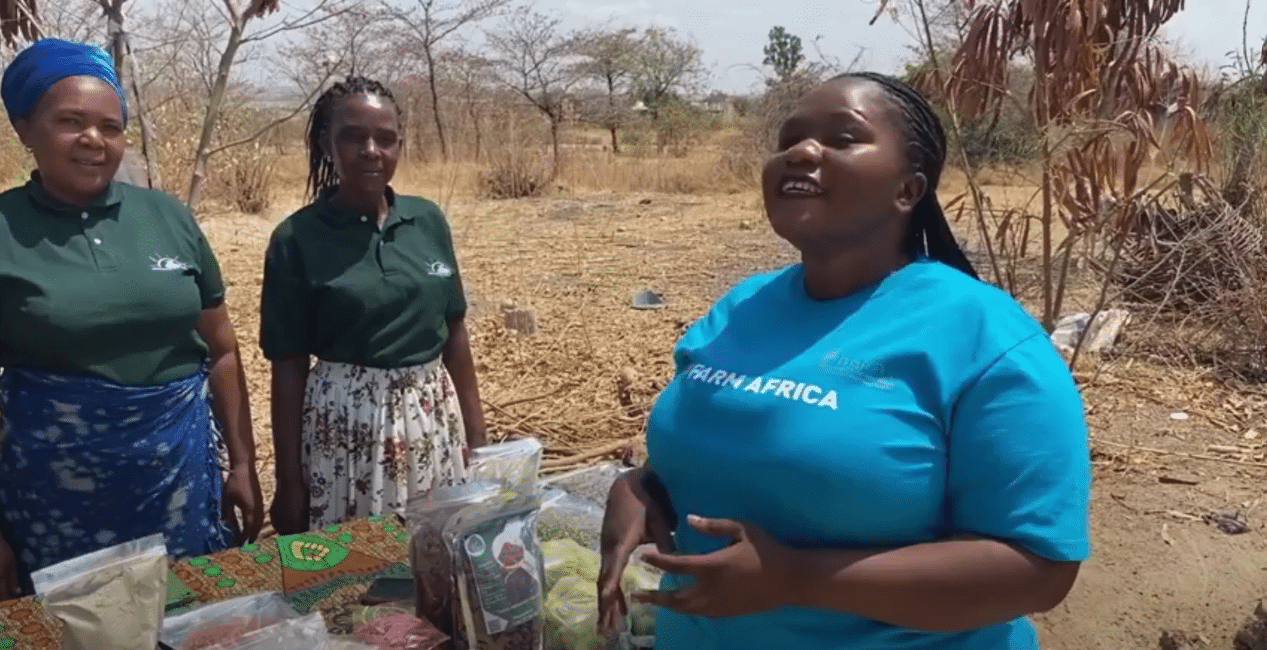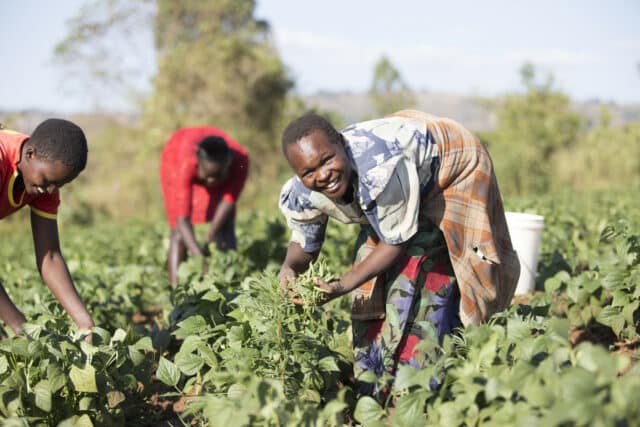Countries we work in
Tanzania
Farm Africa equips farmers and growers in Tanzania with the skills and resources they need to boost their productivity, incomes and resilience to climate change, while conserving biodiversity.

In Tanzania, 63% of the population lives in rural areas, with the vast majority of those people working in farming. An estimated 85% of the country’s farmers are subsistence or small-scale producers, working less than 2.5 hectares of land and relying on rainfall to water their crops.
Tanzania has 44 million hectares of arable land, with an estimated 29 million hectares suitable for irrigation.
Up to 81% of the female population in rural areas works in agriculture.
Challenges
The intensity and frequency of climate-induced shocks, particularly droughts and floods, are rising in Tanzania.
$200 million
Agricultural production in Tanzania suffers estimated average annual losses of US $200 million due to weather, pests, and diseases, which have been increasing in severity and frequency.
Climate change is having a significant negative impact on the agricultural sector, bringing falls in soil quality, heightened prevalence of pests and diseases, erratic rainfall patterns, prolonged droughts and water scarcity.
The majority of smallholder farmers lack access to the agricultural inputs, training, technology, finance and information needed to adapt to climate change.
Farm Africa in Tanzania
Farm Africa equips farmers and growers in Tanzania with the skills and resources they need to boost their productivity, incomes and resilience to climate change, while conserving biodiversity.
With better access to drought-tolerant seeds, training on climate-smart agricultural practices, financial services and guaranteed sale contracts with traders and processors, farmers are able to build thriving businesses that make a profit not just this harvest, but every harvest.
Food produced by farmers and businesses supported by Farm Africa in Tanzania includes poultry, vegetables, oilseeds (such as sunflower and sesame), sorghum, maize, beans, orange-fleshed sweet potatoes, rice, forest products (including honey and mushrooms) and moringa.
Empowering women
Despite women providing the majority of labour in farming in Tanzania, men tend to ultimately own the crops that women produce – and the fields women work in.
Generally, women can take ownership of crops that are grown to feed their families, including beans and vegetables, but not crops that are grown to sell, such as sunflower, coffee and sorghum.
Farm Africa provides tools and support to empower female farmers so they can gain a say and a fair stake in their farming businesses, as well as in their lives overall.
We help women save in groups and issue loans to each other to invest in each other’s small businesses. Having other sources of income apart from farming means women are more resilient to climate change, as they can earn money in other ways if harvests fail.
A market-led approach
We place farmers’ access to markets at the centre of our work, helping farmers engage with the suppliers, buyers and financial service providers they need to build sustainable farm businesses.
We support farmers to interact with markets through a range of intermediaries including farmer groups, cooperatives; micro, small and medium enterprises (MSMEs) and contract farming with larger off-takers/buyers.
We also support the small businesses who buy smallholder farmers’ crops. We offer business mentoring and technical assistance using Farm Africa’s business development services curriculum, which is tailored to support the needs of rural agri-enterprises.
Our programmes in Tanzania
Active
Youth and women in agribusiness
Running since
2023
Country
Tanzania
Target reach
60,000
Key focus areas
Boost youth employment
Empower women
Support businesses
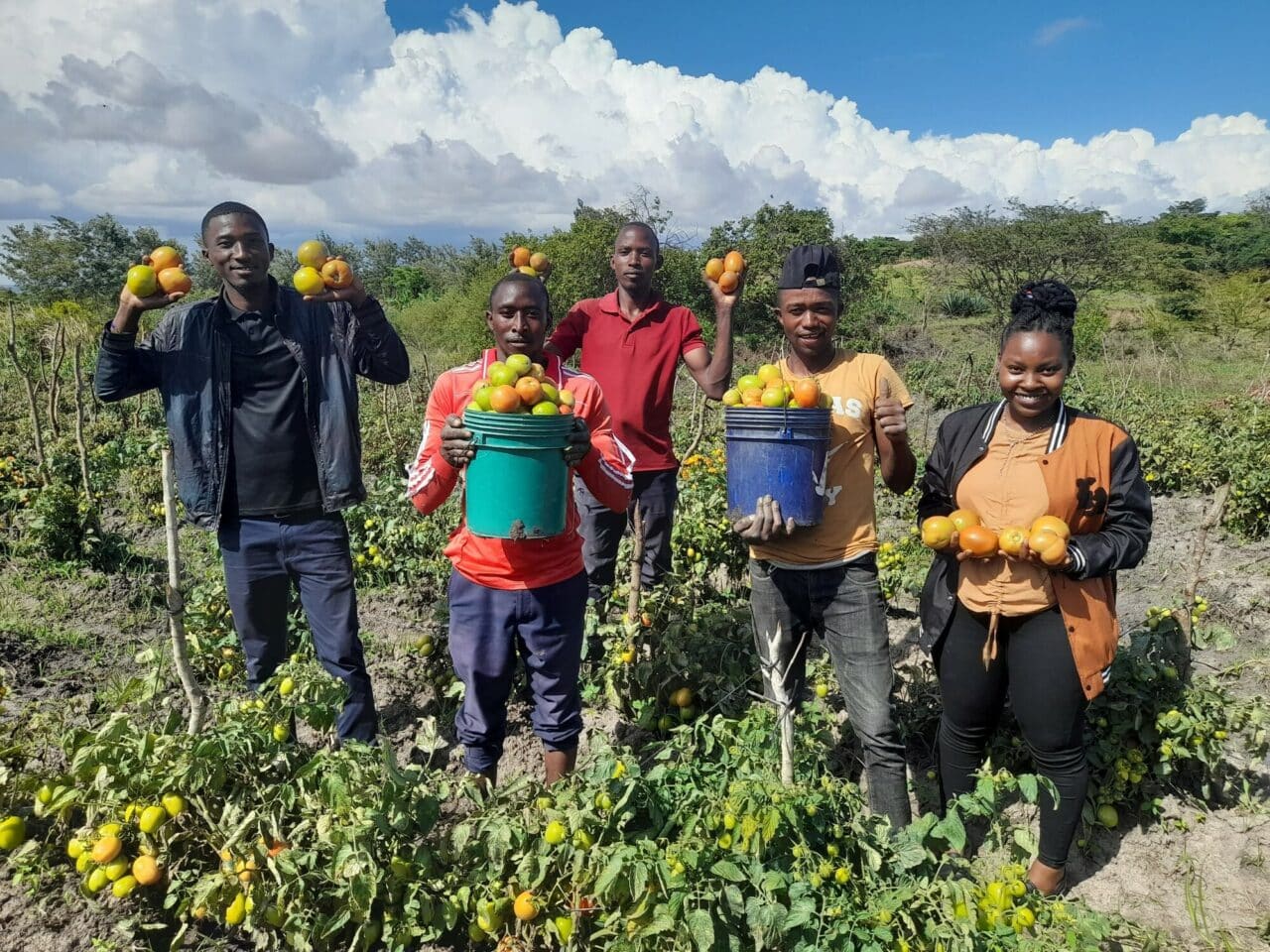
Youth and women in agribusiness
Running since
2023
Country
Tanzania
Target reach
60,000
Key focus areas
Boost youth employment
Empower women
Support businesses
Active
Youth and women in agribusiness
This project aims to sustainably increase the incomes of 60,000 smallholder farmers in the Dodoma and Singida regions of Tanzania by 2025, of whom half are women and over 28,000 are young people. Farm Africa will implement measures to increase food productivity, reduce post-harvest losses and build a well-functioning market system, focusing on the sunflower, sorghum and horticulture value chains.
Farmers, particularly women and young people, will access improved agricultural production techniques, seed varieties, and climate technologies for their crops. Improved post-harvest techniques and value-addition will be promoted, which will also help create job opportunities.
Young people will be offered training in financial literacy and entrepreneurial, leadership and management skills. Farm Africa will also help women and young people apply for grants and loans to grow their businesses.
Running since
2023
Country
Tanzania
Target reach
60,000
Key focus areas
Boost youth employment
Empower women
Support businesses
Active
Farm to Market Alliance
Running since
2022
Country
Tanzania
Target reach
28,000
Key focus areas
Boost productivity
Connect farmers to markets
Support businesses
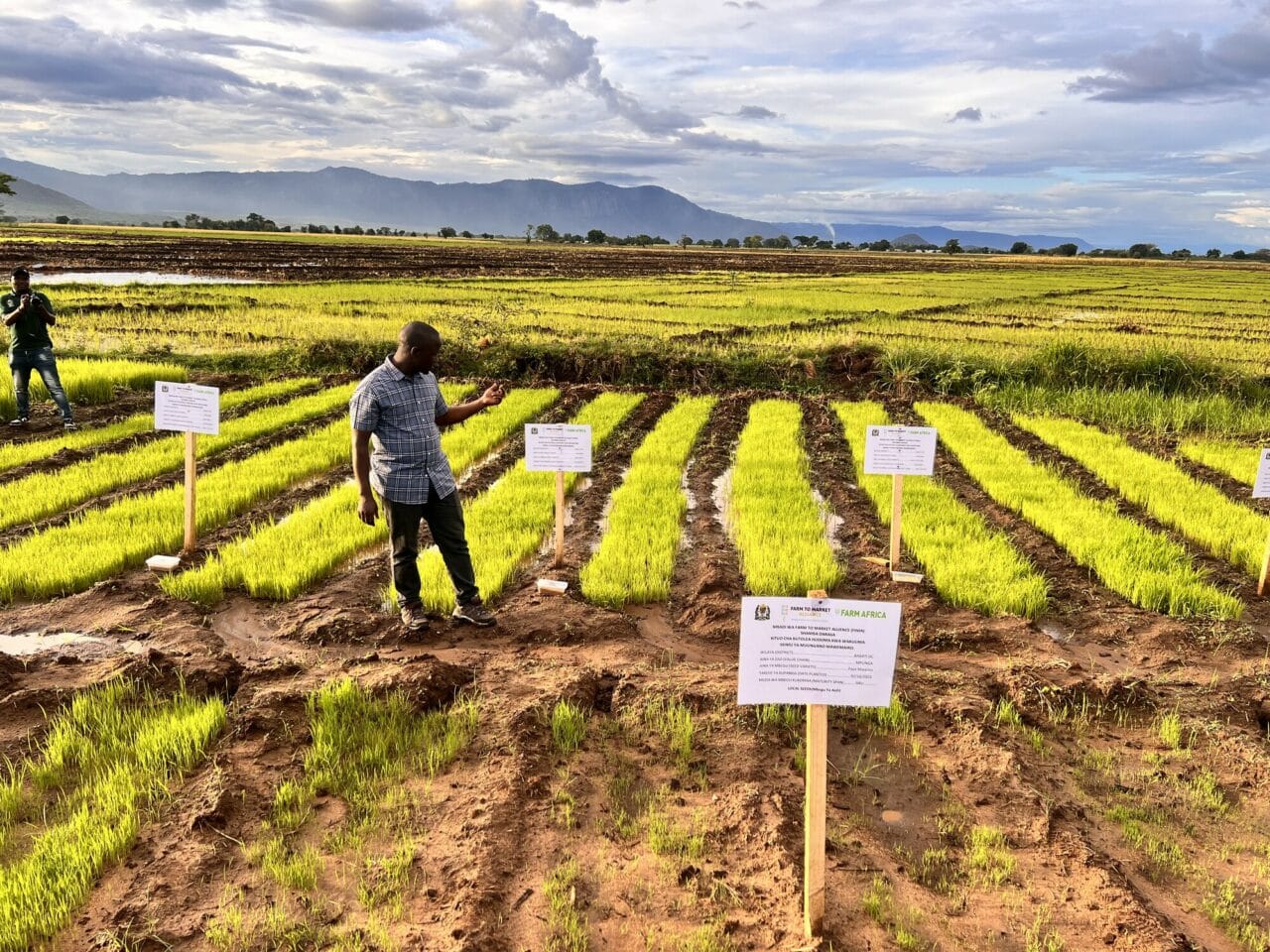
Farm to Market Alliance
Running since
2022
Country
Tanzania
Target reach
28,000
Key focus areas
Boost productivity
Connect farmers to markets
Support businesses
Active
Farm to Market Alliance
Farmer service centres (FSCs) are critical central hubs in agribusiness. They address last mile/first mile inefficiencies and logistical issues and provide farmers with access to necessary services that increase productivity. These include farm inputs like seeds, fertilisers, mechanisation, agricultural extension services and finance. They provide an aggregation point for farmers’ produce; connecting farmers to buyers and providing market partners with quality and quantity assurance.
Running since
2022
Country
Tanzania
Target reach
28,000
Key focus areas
Boost productivity
Connect farmers to markets
Support businesses
Active
Leveraging investment for sustainable household economic development
Running since
2021
Country
Tanzania
Target reach
7,589
Key focus areas
Boost youth employment
Empower women
Increase food security and nutrition
Increase incomes
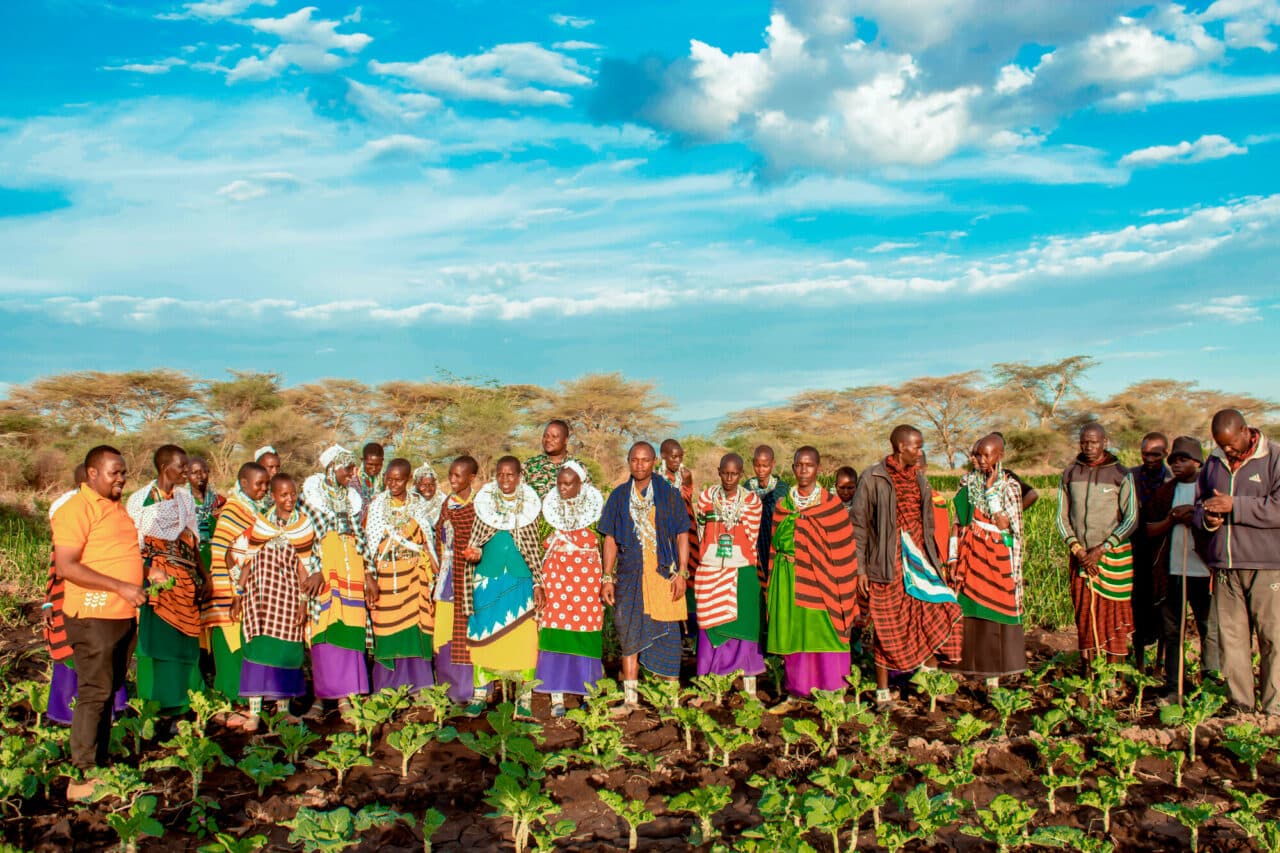
Leveraging investment for sustainable household economic development
Running since
2021
Country
Tanzania
Target reach
7,589
Key focus areas
Boost youth employment
Empower women
Increase food security and nutrition
Increase incomes
Active
Leveraging investment for sustainable household economic development
This project aimed to increase income and job opportunities in the Longido district in Tanzania’s Arusha region. Through sustainable horticulture production and other relevant livelihood activities, women and young people, who live in severe poverty and face the worst effects of drought, benefitted from meaningful employment.
Farm Africa supported communities at a local level and jump-started economic activity to ensure farmers could generate income to sustain themselves. With a holistic approach, we built farmers’ capacities in addressing climate change challenges and improved their food security. We made use of the existing farming community and irrigation schemes and promoted climate-smart agriculture practices and value addition activities to provide affordable food for domestic and export markets. Apart from introducing farmers to relevant market information on horticulture crops, smallholder farmers were also trained on climate-smart agricultural technologies and products.
This project also focused on increasing knowledge on gender equality, improving local institutional capacity on gender inclusivity and promoting the participation of women and young people in sustainable economic activities. When implementing these activities, Farm Africa involved village, ward and district extension agents who continued the advisory role after the project ended. This participatory method of involving all relevant actors ensures the project’s activities are sustainable long-term.
Running since
2021
Country
Tanzania
Target reach
7,589
Key focus areas
Boost youth employment
Empower women
Increase food security and nutrition
Increase incomes
Watch
Resources
Country
Tanzania
Key focus areas
Boost youth employment
Empower women
The role of gender in the Tanzanian horticulture sector
In Tanzania, women and youth are active participants in the agriculture sector, making significant contributions to the sector’s growth. However, the country’s progress towards gender parity across critical areas of life is still at the disadvantage of women. This document shares Farm Africa’s learning from its DECIDE horticulture programme, which has been working with 55 small and medium enterprises (56% women-led) in the Tanzanian horticultural sector.
Download (3.25mb)
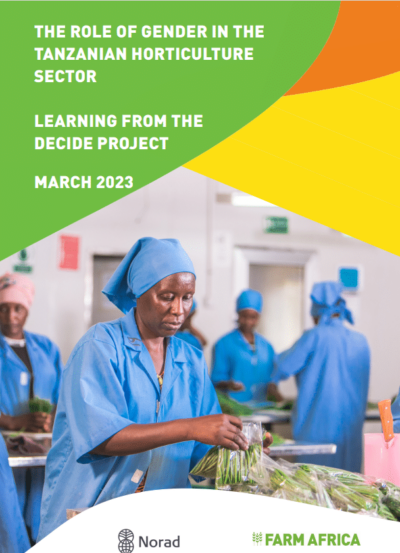
Country
Tanzania
Key focus areas
Boost youth employment
Empower women
Country
Tanzania
Key focus areas
Increase access to finance
Available Financing Options for MSMEs in Tanzania
An overview of the challenges micro, small and medium-sized enterprises (MSMEs) face accessing finance in Tanzania, with recommendations on how the situation can be improved.
Download (1.63mb)
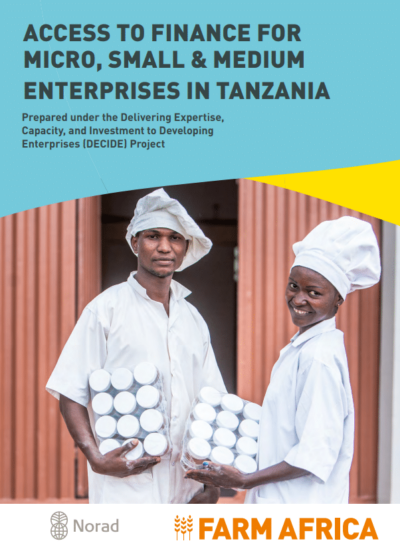
Country
Tanzania
Key focus areas
Increase access to finance
Country
Tanzania
Key focus areas
Boost productivity
Increase incomes
Protect ecosystems
The Nou joint forest management project
In Tanzania, the Nou JFM project is a collaboration between forest communities and the government’s Forestry and Beekeeping Division (FBD) of the Ministry of Natural Resources and Tourism. The project aims to conserve a catchment forest of national importance. (July 2007)
Download (615.16kb)
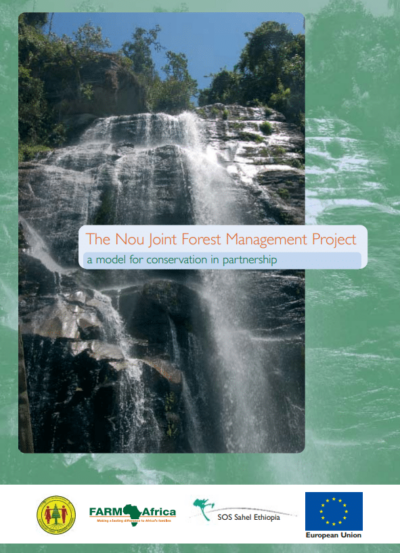
Country
Tanzania
Key focus areas
Boost productivity
Increase incomes
Protect ecosystems
Country
Ethiopia
Key focus areas
Connect farmers to markets
Support businesses
Cultivate overview
An overview of Cultivate, a business development services unit created by Farm Africa that supports rural small and growing agribusinesses across eastern Africa.
Download (3.83mb)
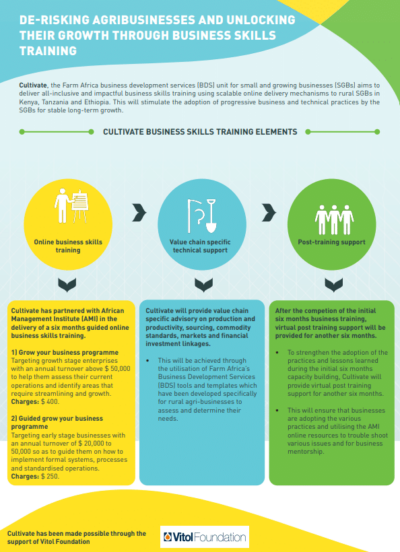
Country
Ethiopia
Key focus areas
Connect farmers to markets
Support businesses
Country
Tanzania
Key focus areas
Act on climate change
Boost productivity
Connect farmers to markets
Tanzania sunflower market assessment 2022
A report on the state of Tanzania’s sunflower market and recommendations for smallholder farmers to increase their yields.
Download (1.12mb)
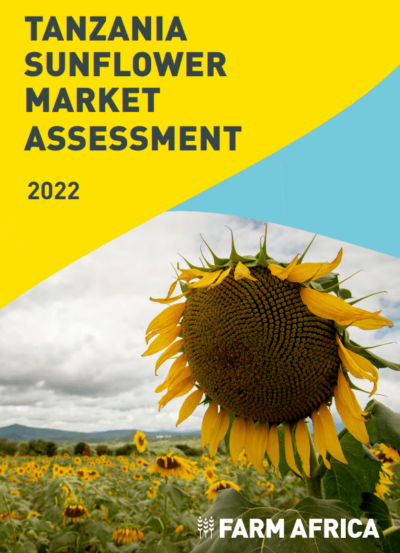
Country
Tanzania
Key focus areas
Act on climate change
Boost productivity
Connect farmers to markets
